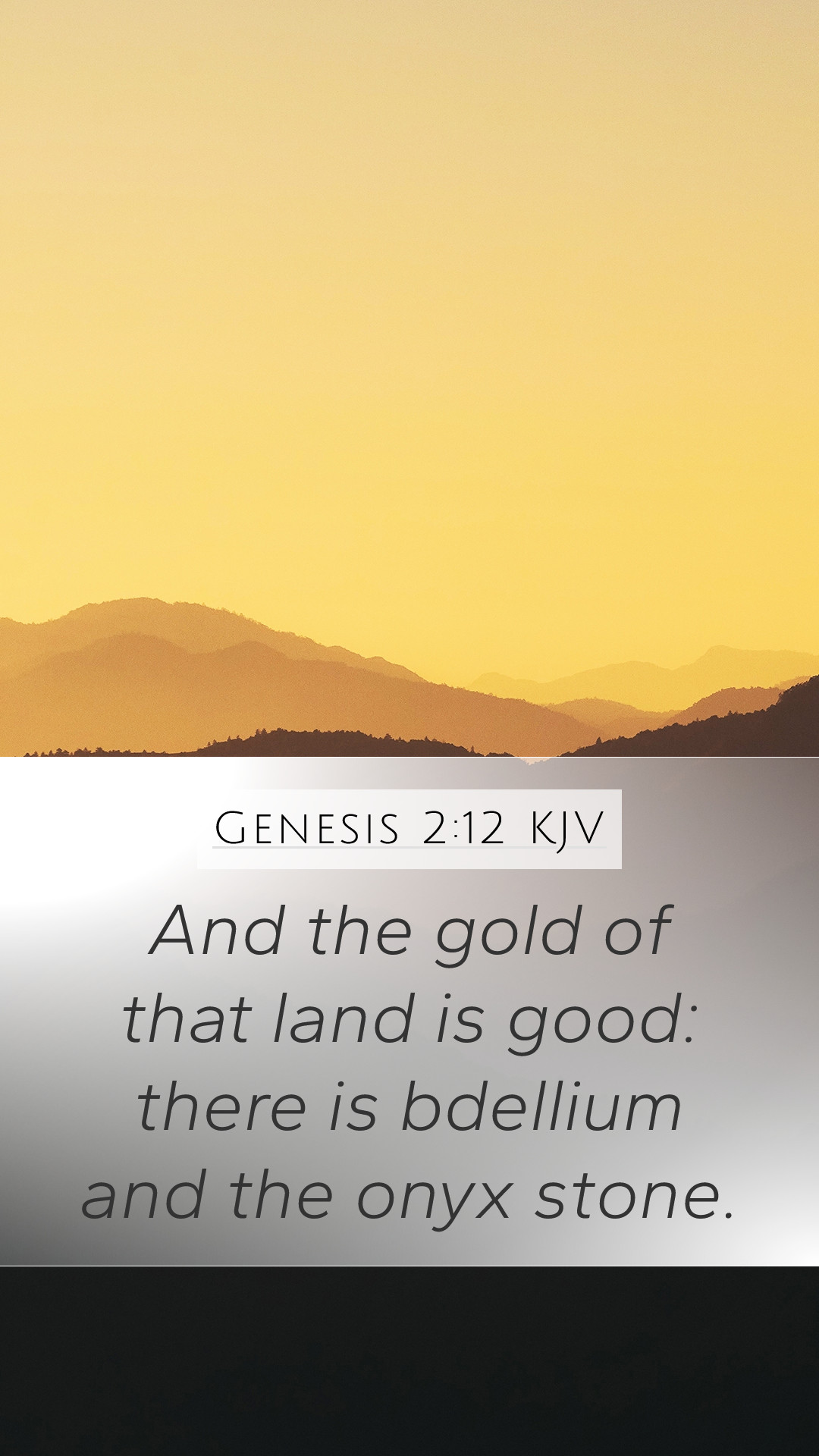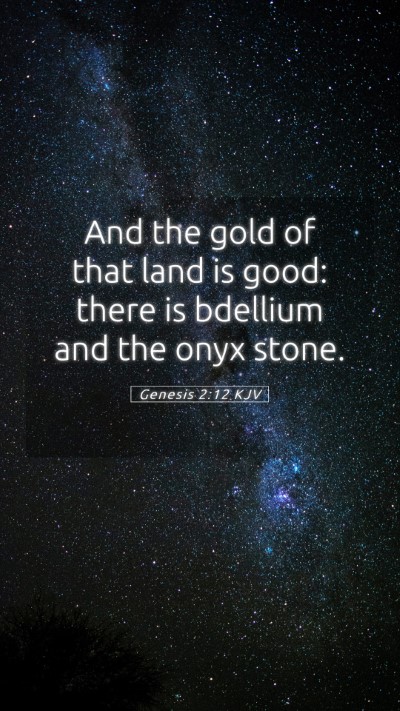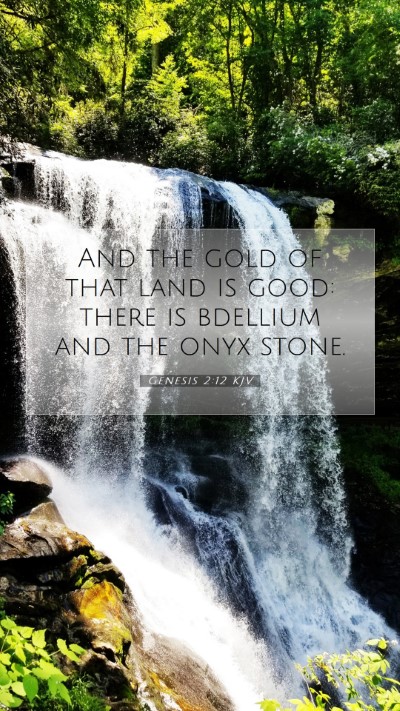Understanding Genesis 2:12
The verse Genesis 2:12 states, "And the gold of that land is good; there is bdellium and the onyx stone." This verse is part of the narrative describing the Garden of Eden, which is seen as a place of divine provision and abundance. Let's explore the meaning of this verse through insights derived from public domain commentaries.
Bible Verse Meanings
Genesis 2:12 highlights the richness of the land in which humans were placed by God. According to Matthew Henry's commentary, this description emphasizes not only the quality of the gold but also the beauty and desirability of the materials found there. This suggests a divine intention behind creation, where natural resources reflect God’s bounty.
Bible Verse Interpretations
Albert Barnes elucidates that bdellium and onyx are precious substances that serve symbolic purposes. They are often interpreted as representing the beauty and wealth of God’s creation, indicating that the earth was created in a state of glory and perfection before the fall of humanity.
Scripture Analysis
Adam Clarke points out that the mention of specific exotic materials suggests that despite the fall, there is still beauty and goodness in the world. The gold and precious stones serve to remind readers that ultimate prosperity and divine blessing were part of the original creation plan. It also warns of the corrupting influence of greed and materialism that can arise from such riches.
Significance of the Garden of Eden
-
Divine Provision: The mention of valuable resources indicates that God provided abundantly for humanity's needs.
-
Symbol of Blessing: The resources symbolize God's blessings and the intended harmony between humanity and creation.
-
Preparation for Life: By providing these resources, God prepared humanity to cultivate and steward the earth.
Bible Study Insights
In studying Genesis 2:12, it is essential to consider the historical context of the verse. The Garden of Eden is often seen as a prototype of paradise, establishing standards for divine intentions regarding human habitation and stewardship of the earth.
Application of Genesis 2:12
This verse can be applied to our lives by encouraging a mindset of gratitude for the resources we have. Understanding the creation as a place of provision leads us to realize the importance of caring for our environment, respecting the resources we are given, and using them responsibly.
How to Interpret Bible Verses
Interpreting Bible verses requires a contextual understanding, reflecting on both historical and theological perspectives. When analyzing Genesis 2:12, consider the broader themes of creation, stewardship, and divine generosity.
Related Bible Passages
- Genesis 1:31 - “And God saw everything that he had made, and behold, it was very good.”
- Exodus 25:7 - “Oil for the light, spices for anointing oil, and for sweet incense;”
- Job 28:16 - “It cannot be weighed with the gold of Ophir, with the precious onyx, or the sapphire.”
Conclusion
Genesis 2:12 invites us to reflect on the magnificence of God’s creation and his desire for humanity to live in harmony with it. Understanding such Bible verses deepens our Bible verse knowledge, enriches our Bible study experiences, and reveals the underlying spiritual truths that can influence our daily lives.
In summary, engaging with the meanings and interpretations of Bible verses like Genesis 2:12 can significantly enhance our biblical exegesis and scripture understanding.


